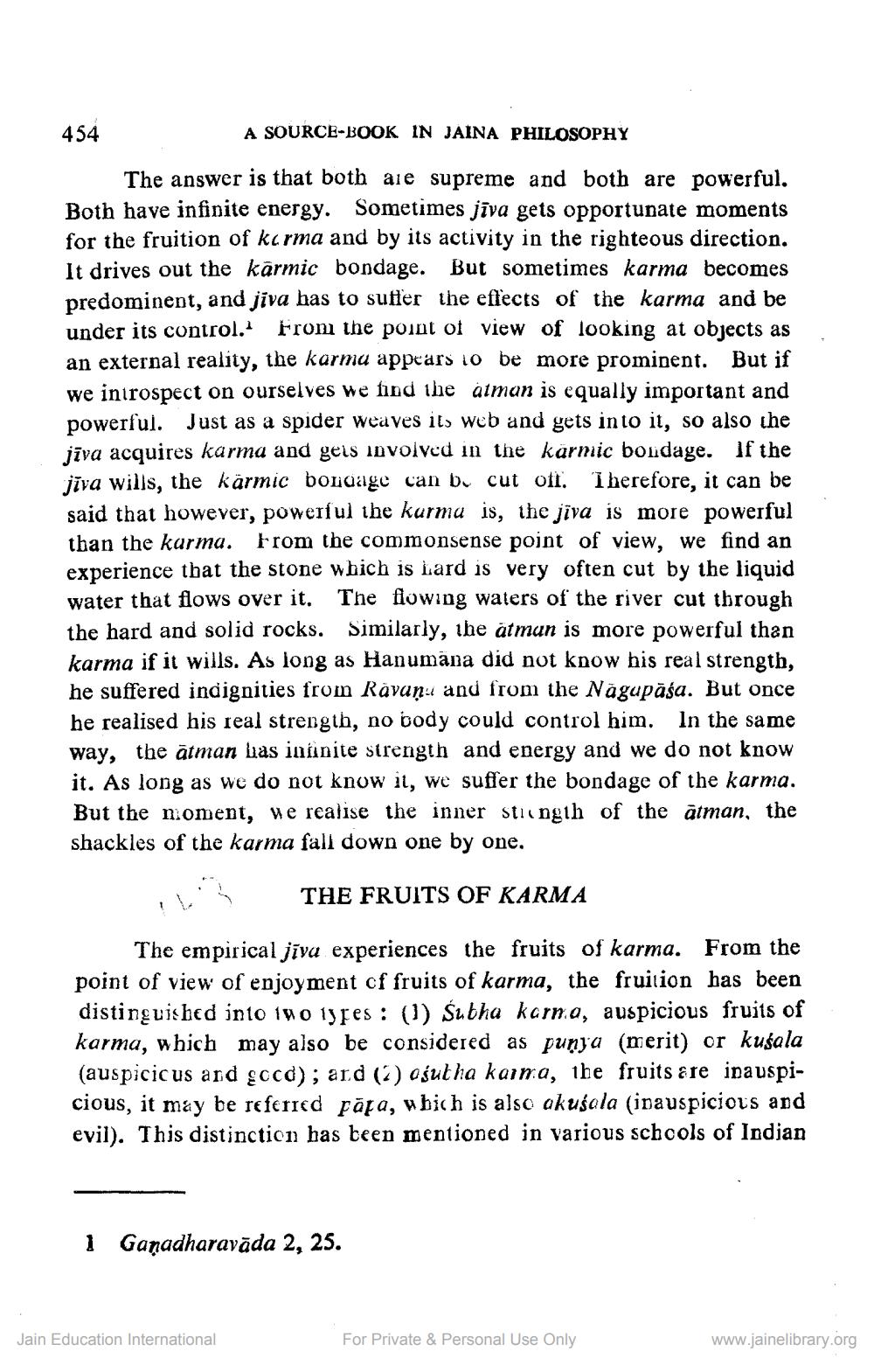________________
A SOURCE-BOOK IN JAINA PHILOSOPHY
The answer is that both are supreme and both are powerful. Both have infinite energy. Sometimes jīva gets opportunate moments for the fruition of karma and by its activity in the righteous direction. It drives out the karmic bondage. But sometimes karma becomes predominent, and jiva has to suffer the effects of the karma and be under its control.1 From the point of view of looking at objects as an external reality, the karma appears to be more prominent. But if we introspect on ourselves we find the atman is equally important and powerful. Just as a spider weaves its web and gets into it, so also the jīva acquires karma and gets involved in the karmic bondage. If the jiva wills, the karmic bondage can be cut off. Therefore, it can be said that however, powerful the karma is, the jiva is more powerful than the karma. From the commonsense point of view, we find an experience that the stone which is hard is very often cut by the liquid water that flows over it. The flowing waters of the river cut through the hard and solid rocks. Similarly, the atman is more powerful than karma if it wills. As long as Hanumana did not know his real strength, he suffered indignities from Rāvanu and from the Nagupāśa. But once he realised his real strength, no body could control him. In the same way, the atman has infinite strength and energy and we do not know it. As long as we do not know it, we suffer the bondage of the karma. But the moment, we realise the inner strength of the atman, the shackles of the karma fall down one by one.
THE FRUITS OF KARMA
The empirical jīva experiences the fruits of karma. From the point of view of enjoyment of fruits of karma, the fruition has been distinguished into two types: (1) Subha karma, auspicious fruits of karma, which may also be considered as punya (merit) or kuśala (auspicicus and gccd); and (2) ośubha karma, the fruits are inauspicious, it may be referred papa, which is also akusala (inauspicious and evil). This distinction has been mentioned in various schools of Indian
454
1 Gaṇadharavāda 2, 25.
Jain Education International
For Private & Personal Use Only
www.jainelibrary.org




